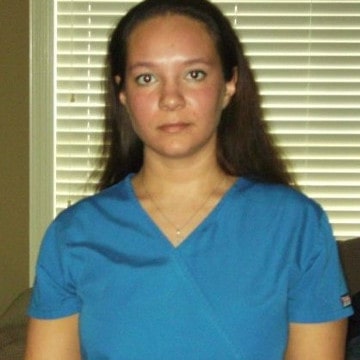Guide to congestive heart failure: Living advice & resources
Ahmed Raza
 Written by
Amanda Menard, LPN,
a practical nurse since 2005 with experience in ICU, cardiac care, and case management. She is pursuing her MSN for Family Nurse Practitioner and is a former Military Medic with the Louisiana National Guard.
Written by
Amanda Menard, LPN,
a practical nurse since 2005 with experience in ICU, cardiac care, and case management. She is pursuing her MSN for Family Nurse Practitioner and is a former Military Medic with the Louisiana National Guard.
Congestive heart failure (CHF) can be a scary and confusing diagnosis. Congestive heart failure has a number of causes including heart attacks, infections, cardiac arrhythmias, high blood pressure and even genetics. Once you are diagnosed with congestive heart failure it is important to alter your lifestyle to limit the impact that the disease may cause on your health. You may be stuck with congestive heart failure, but it doesn’t have to define your life.
Let’s start at the beginning. What is congestive heart failure?
The heart is a pump. Its job is to pump old non oxygenated blood from the body to the lungs so it can be oxygenated and then be pumped out so that each and every cell can be supplied. Congestive heart failure is the inability of the left side of the heart to pump an adequate amount of blood due to different factors. Because of this condition, the heart is weak and unable to pump all of its blood forward and some of it backs up to the lungs. This results in the lungs becoming congested with blood and fluid, thus the name, “congestive” heart failure. This congestion makes the patient feel short of breath. The more you exert yourself, the more oxygen the body requires and the less able the heart is to supply it. This is mainly the reason people may have a poor tolerance for strenuous activity if the CHF is not well controlled.
Heart failure, if left untreated, can cause damage to other important organs. Each and every tissue in your body requires a supply of oxygen and nutrients to do well. Your kidneys, your liver, your abdominal organs, and even your lungs must be supplied constantly with an adequate supply of oxygenated blood. If your heart is unable to deliver that oxygen rich blood those vital organs will begin to fail over time.
Additional resources:
- An overview of heart failure — Mayo Clinic
- Different types of heart failure and their causes
- Overview of heart failure
Signs and symptoms
Some of the signs and symptoms of heart failure may be easy to miss or can be blamed on other simpler issues. These include:
- Feeling tired more often and with less exercise
- Experiencing shortness of breath with less and less exertion
- Unexplained weight gain — especially the appearance of being bloated, this is called “edema”
- Cough without the presence of a cold or sinus infection, along with traces of blood in the saliva
Resources to help you recognize the signs and symptoms of heart disease:
What treatments are available for congestive heart failure?
Most treatment options for congestive heart failure involve the use of various medications. A physician will work closely with you to find the perfect combination of medications that will help your heart work better and help with the demands of the body. Managing CHF requires a delicate balance between taking the workload off the heart and supplying enough oxygen and nutrients to the organs of the body. There are a couple of things you can do to make that job just a bit easier for your heart. We will discuss those in the next section of this article.
You may be prescribed a combination of the following medications to help with your heart failure.
- Anticoagulants — (commonly known as blood thinners) — they don’t actually “thin” the blood, but they prevent clots from happening. If your heart’s not beating in an organized and strong manner, sometimes blood can remain in small pockets of the atrium and form blood clots. This increases your risk of stroke or blood clots in the lungs if they were to dislodge and travel there. If you are on a blood thinner, you will most likely require regular blood tests to check your levels. You should be careful not to injure yourself and pay attention to symptoms that may indicate internal bleeding such as dark stools.
- Antiplatelet agents — (Plavix) these medications also help with preventing blood clotting by inhibiting platelets that play an important role in forming them.
- ACE inhibitors — Decrease the work that the heart has to do in order to pump blood around the body. They do this by dilating (widening) the blood vessels and decreasing the resistance that the heart has to pump against. They also help keep blood pressure under control.
- Beta blockers — used to take the “workload” off of the heart. They slow your heart rate and decrease the strength of contraction to allow your heart to pump using less energy. These are used to control hypertension as well.
- Calcium channel blockers — used to decrease the workload of the heart. They are also used to control arrhythmias (irregular heart rhythms). The most common in congestive heart failure is atrial fibrillation.
- Statins — used to lower LDL (bad) cholesterol levels. They have also been shown to help raise HDL (good) cholesterol levels and lower triglycerides. All patients with any type of heart disease are generally prescribed a statin due to the fact that one of the forms of plaque formation is a direct cause of lipid acids.
- Digitalis preparations — used to keep the heart rhythm regular with patients who have a problem with atrial fibrillation along with congestive heart failure. They are also used in advanced stages of the disease. Special care must be taken with the use of these medications due to its adverse effects.
- Diuretics — cause the body to excrete excess water. This prevents the heart from becoming overloaded and backing up into the lungs and causing symptoms of congestive heart failure, particularly shortness of breath. In addition, they prevent the build up of fluid and subsequent edema in the body such as the legs and ankles.
- Vasodilators (nitroglycerin) — is given to reduce the amount of oxygen needed by the heart muscle and to dilate the coronary arteries to increase the amount of oxygen available to the heart muscle. This medication is particularly used to treat the pain of angina.
For more information regarding medications used to treat congestive heart failure:
- Heart failure treatment guidelines
- Medicines for congestive heart failure
- How is heart failure treated?
Since you will be taking multiple medications at multiple times during the day, it is essential that you develop a system that works for you. Perhaps purchasing a pill box that you can fill once a week and use each day may help. It is imperative that you be 100% compliant with your medication regimen. Each medication is designed to not only to work with your body, but to also work with each other to maximize your heart’s ability to pump blood. It can be dangerous to take your medications at the wrong times or in wrong dosages.
There are invasive treatments for advanced congestive heart failure including heart transplantation and even the implantation of a pump that helps the heart push the blood along, but they are beyond the scope of this article.
Keeping your heart failure from progressing
There are some relatively straight forward recommendations that may help keep your congestive heart failure at bay. The first we have already dealt with: 100% compliance with medication.
- Regular visits with both your PCP and your cardiologist. Congestive heart failure must be monitored closely and any changes treated promptly. You should weigh yourself at least weekly and any 3lb or more weight gain should be reported to your physician. It may be the result of your body retaining fluid.
- Dietary changes — If you are even slightly overweight, weight loss is imperative to prevent further damage to your heart muscle. The larger your body, the harder your already damaged heart has to work in order to supply much needed oxygen and nutrients. Even moderate weight loss can have a large impact on your congestive heart failure management.
- Exercise — can be a challenge because of the symptoms of congestive heart failure. However, any increase in activity is of utmost importance. Simple things like parking far away from the store instead of looking for the closest space can make a difference. Walking is a great low impact exercise for patients with congestive heart failure. If the weather doesn’t cooperate, or you don’t have a safe, level place to walk, try the local shopping mall. Many malls open early and even place distance markers to be used by people who utilize the mall for exercise. It’s a great way to meet people, have some fun and stay healthy too! Just be careful not to overdo it.
- Avoid fluid overload — restricting fluid intake is important. Do remember that the more fluid the heart is unable to pump forward, the more symptoms that will appear in the long run due to the amount of workload imposed. It only stands to reason that a decrease in fluid intake can reduce the amount of work the heart has to deal with.
- Salt intake — where there is salt there is water. If you have a lot of salt in your body, you will retain fluid. It is important to avoid foods with high salt content and to refrain from salting foods.
- Smoking — Must be avoided at all costs. The smoke in cigarette carries a lot of carbon monoxide, this molecule worsens the ability of oxygen to be carried properly to the different tissues.
- Stay healthy — it takes a lot of energy for your body to fight off everyday illnesses like the flu virus. Be sure to stay current on flu and pneumonia vaccinations. A respiratory disease may cause decompensation of your heart failure, so it’s not a good idea to take the risk.
Additional resources to help with healthylife style changes in patient with congestive heart failure:

Written by Amanda Menard, LPN, a practical nurse since 2005 with experience in ICU, cardiac care, and case management. She is pursuing her MSN for Family Nurse Practitioner and is a former Military Medic with the Louisiana National Guard.
More by this author:

Reviewed by Lorraine Anne Liu, RN, a registered nurse and cum laude graduate with experience in OR, ICU, delivery room, and OPD. She specializes in pediatric care and primary health care nursing and is certified in BLS, IV therapy, and cardiac assessment.
More by this author: